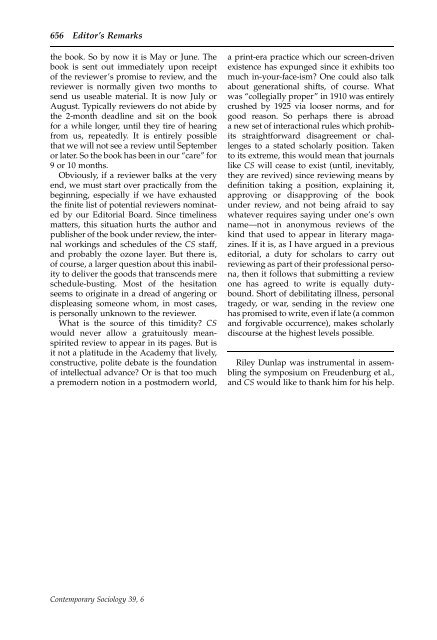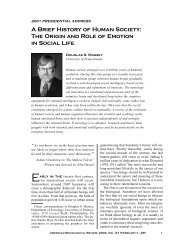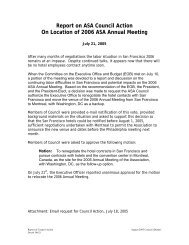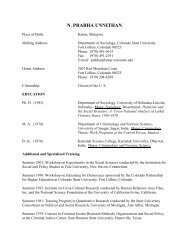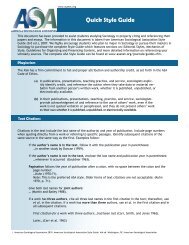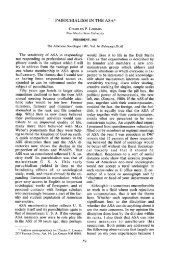Contemporary Sociology - American Sociological Association
Contemporary Sociology - American Sociological Association
Contemporary Sociology - American Sociological Association
Create successful ePaper yourself
Turn your PDF publications into a flip-book with our unique Google optimized e-Paper software.
656 Editor’s Remarks<br />
the book. So by now it is May or June. The<br />
book is sent out immediately upon receipt<br />
of the reviewer’s promise to review, and the<br />
reviewer is normally given two months to<br />
send us useable material. It is now July or<br />
August. Typically reviewers do not abide by<br />
the 2-month deadline and sit on the book<br />
for a while longer, until they tire of hearing<br />
from us, repeatedly. It is entirely possible<br />
that we will not see a review until September<br />
or later. So the book has been in our ‘‘care’’ for<br />
9or10months.<br />
Obviously, if a reviewer balks at the very<br />
end, we must start over practically from the<br />
beginning, especially if we have exhausted<br />
the finite list of potential reviewers nominated<br />
by our Editorial Board. Since timeliness<br />
matters, this situation hurts the author and<br />
publisher of the book under review, the internal<br />
workings and schedules of the CS staff,<br />
and probably the ozone layer. But there is,<br />
of course, a larger question about this inability<br />
to deliver the goods that transcends mere<br />
schedule-busting. Most of the hesitation<br />
seems to originate in a dread of angering or<br />
displeasing someone whom, in most cases,<br />
is personally unknown to the reviewer.<br />
What is the source of this timidity? CS<br />
would never allow a gratuitously meanspirited<br />
review to appear in its pages. But is<br />
it not a platitude in the Academy that lively,<br />
constructive, polite debate is the foundation<br />
of intellectual advance? Or is that too much<br />
a premodern notion in a postmodern world,<br />
<strong>Contemporary</strong> <strong>Sociology</strong> 39, 6<br />
a print-era practice which our screen-driven<br />
existence has expunged since it exhibits too<br />
much in-your-face-ism? One could also talk<br />
about generational shifts, of course. What<br />
was ‘‘collegially proper’’ in 1910 was entirely<br />
crushed by 1925 via looser norms, and for<br />
good reason. So perhaps there is abroad<br />
a new set of interactional rules which prohibits<br />
straightforward disagreement or challenges<br />
to a stated scholarly position. Taken<br />
to its extreme, this would mean that journals<br />
like CS will cease to exist (until, inevitably,<br />
they are revived) since reviewing means by<br />
definition taking a position, explaining it,<br />
approving or disapproving of the book<br />
under review, and not being afraid to say<br />
whatever requires saying under one’s own<br />
name—not in anonymous reviews of the<br />
kind that used to appear in literary magazines.<br />
If it is, as I have argued in a previous<br />
editorial, a duty for scholars to carry out<br />
reviewing as part of their professional persona,<br />
then it follows that submitting a review<br />
one has agreed to write is equally dutybound.<br />
Short of debilitating illness, personal<br />
tragedy, or war, sending in the review one<br />
has promised to write, even if late (a common<br />
and forgivable occurrence), makes scholarly<br />
discourse at the highest levels possible.<br />
Riley Dunlap was instrumental in assembling<br />
the symposium on Freudenburg et al.,<br />
and CS would like to thank him for his help.


